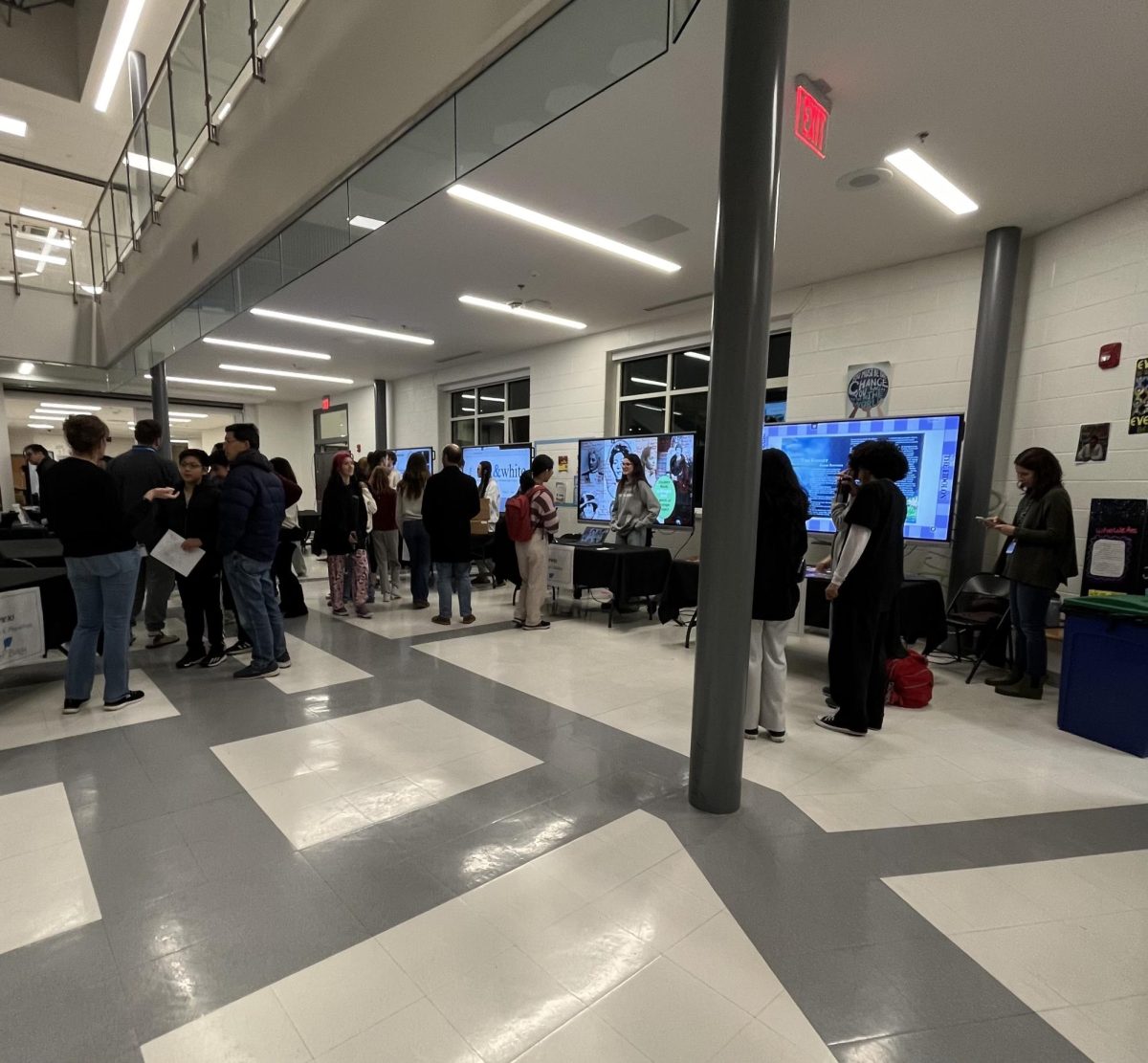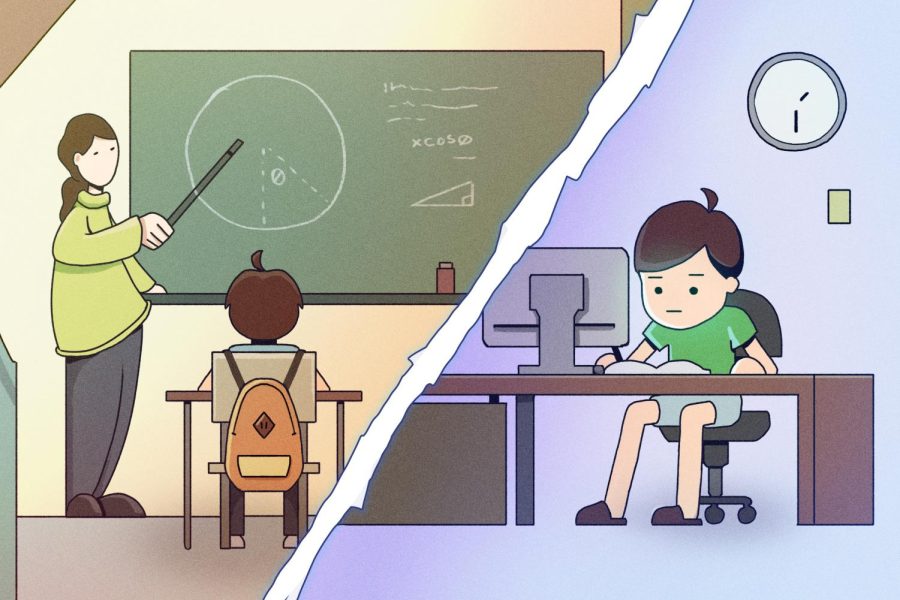Thunder roared through the WAUD May 5-7 as flashes of lights created lightning on the stage during Shakespeare Club’s performance of its spring play, “The Tempest.”

The play, which focuses on the aftermath of a shipwreck on a deserted island, was the Shakespeare Club’s second show this year—following its December rendition of “Macbeth”—but its first production to have a ‘70s theme or use an actual set.
While directors Simone Augustine and Sophia Higgins were deciding on a theme, the play’s focus on characters on an island originally made them think of Gilligan’s Island—a ‘60s sitcom about stranded sightseers—which eventually led them to the ‘70s theme, Augustine said.
Emulating the ‘70s vibe, the characters flaunted flowing dresses and peace sign necklaces; movement between scenes was punctuated with music from famous ‘70s artists like Led Zeppelin, The Velvet Underground and The Kinks.
“When we sat down and we talked about a different way to do the show, we ended up on a ‘70s theme because it’s not something that Shakespeare Club does often,” Augustine said. “From there, the music just came naturally.”
Sophomore Sophie Isbel thought the music helped the audience better appreciate the theme, because it incorporated many easily recognizable songs, she said.
The play also featured original music. Former Whitman teacher Wayne Chadwick gave the Shakespeare Club permission to use songs he originally composed for an out-of-school production of “The Tempest” a few years ago, where the lyrics were part of Shakespeare’s original script.
In addition to the show’s novel theme and music, the production marked the first time that the club had used an actual set in one of their shows, as they traditionally do black box style productions.
“Since we don’t have a running crew, the actors have always been responsible for scene transitions,” said senior Zoe Berkovitz, who played Trinculo. “Having a set that stays on stage throughout the show makes our jobs a lot easier.”
Under Augustine and Higgins’ direction, the group began casting in January, and has been rehearsing three times a week since February.
In order to get the 21-member cast to connect with the show and better understand their character’s emotions, the directors went through each scene and had the actors translate their lines into modern English.
“When you actually speak it in modern English, you can really get the contemporary feel, since a lot of the concepts are still relevant, it’s just the language that makes it seem archaic,” Augustine said.
Though both directors had participated in multiple shows together since freshman year, directing was harder than they anticipated because of this year’s added feature of a set, Augustine said. However, after seeing the show, she said she felt as if all the hard work had paid off.
“It’s definitely rewarding sitting in the back of the auditorium watching them do it all by themselves.”








